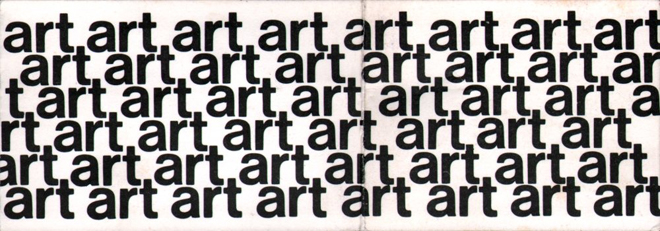Bye Bye Biennale
 Artemus Jones •
Artemus Jones •  Sunday, March 16, 2014
Sunday, March 16, 2014 Artemus Jones on the withdrawal of Transfield funding and Luca Belgiorno-Nettis from the Biennale of Sydney ... Victory of the trolls ... Caving in to political correctness ... Arts bodies have got to show courage in the face of attacks ... Otherwise they're doomed

The continuing sponsorship furore involving the Biennale of Sydney is an instructive example of how public debate has degenerated in the age of the internet.
In fact, public debate no longer exists.
It has been superceded by brutal ideological posturing, the effect of which is to destroy any organisation or individual perceived to be out of step with the cannons of political correctness.
This kind of sordid spectacle now plays itself out in the media almost on a daily basis.
The most ludicrous recent example involved the condemnation of a French politician who made a feeble joke about the lack of public safety in Algeria, a country ravaged by civil wars for the last 60 years.
The Biennale debacle exhibits all the characteristics of what passes for public discussion.
The essential ingredients of the contention are these:
First, we have an organisation (the Biennale) engaging in a worthwhile public activity by bringing contemporary art to the Sydney masses.
Second, there is the sponsor company and high-profile member of the Biennale board (Transfield and Luca Belgiorno-Nettis) with links to a company providing support services to offshore detention centres established by the Commonwealth government - who are both deemed by a vocal minority to have engaged in an impermissable (although perfectly legal) activity.
Third, there is a small group of protestors (a few disaffected artists contracted to appear at the Biennale and the usual internet rabble and trolls).
In a civilised society, in which genuine public debate was possible, this kind of dispute would have generated a rational discussion in which both sides defended their respective positions. There may have been some protests at Biennale events, but life (and the Biennale) would have gone on pretty much unaffected.
That, of course, is not what has happened over the past few weeks.
Rather, we have seen the resignation of Mr Belgiorno-Nettis, the withdrawl of next year's funding to the Biennale by Transfield, a boycott by a few hitherto unknown artists, an avalanche of adverse publicity and the disruption of the Biennale - which is due to open this week.
More ominously, threats have been made to similarly disrupt the activities of a number of other cultural institutions in Sydney, which stand accused of being sponsored by politically incorrect donors.
To understand what has led to this state of affairs requires an understanding of the psychology of both protestors and their target.
As to the internet rabble and trolls, that is a simple matter. These creatures live in a parallel internet universe in which they heap abuse upon anyone or anything with which they do not agree.
For them, ideological commitment involves (by definition) a desire to destroy those who disagree with them.
They have vilified Biennale staff via the internet for the past few weeks (accusing them of "having blood on their hands") and they regularly engage in savage internet campaigns with impunity.
The psychology of the disaffected artists is a little more complex. They appear to be, for the most part, misguided idealogues and attention seekers with a touch of megalomania. Little known before the current furore, their names and pictures now appear regularly in the media.
They surely cannot believe that their protest will change government policy on asylum seekers (which, of course, is not controlled by Transfield or the Biennale).
Malcolm Turnbull has made this clear and accused the protesting artists of "sheer vicious ingratitude".
It also appears that some of the artists have no difficulty in accepting government funds from the Australia Council, notwithstanding their fervently held ideological views about the government's asylum seeker policy.
Even more troubling has been the Biennale's response to this attack.
Initially there was a feeble press release in which no attempt was made to defend its position. It then agreed to host a public forum, which would only have given its critics yet another platform from which to criticise and abuse.
Then came complete and utter capitulation - the acceptance of Mr Belgiorno-Nettis' resignation. It now appears Tranfield's sponsorship will also go from next year.
"We have listened to the artists" said the Biennale.
 Manis Island processing centre: the object of Biennale artists' protest
Manis Island processing centre: the object of Biennale artists' protest
It also appears that the Biennale will welcome the boycotting artists back, should they yet again change their minds and agree to take part in the Biennale.
How can one explain this weasle-like response?
Why couldn't the Biennale have simply defended Mr Belgiorno-Nettis and Transfield by pointing to their record of funding the arts (including establishing the Biennale) and the fact that overseas detention centres are a bi-partisan political policy supported by the vast majority of Australian voters?
I think there are a number of factors that explain the capitulation.
First, the cannons of political correctness are so uncritically and dogmatically accepted these days that it is almost impossible for individuals or organisations (with few exceptions) to publicly question them - even if they wanted to.
Secondly, individuals and organisations seem powerless in the face of campaigns conducted on the internet. The inherent validity and effectiveness of such campaigns is simply taken for granted and capitulation inevitably follows.
Thirdly, our culture seems permeated by intellectual cowardice. Perhaps this is simply a corollary of the first two factors.
In any event, the capitulation of the Biennale will have serious consequences both for itself and the arts community generally.
The Biennale is complicit in driving a longstanding sponsor of the arts out of the cultural field. In the circumstances, other sponsors will become reluctant to become involved and governments will not make up the shortfall.
The consequences for arts organisations generally will also be dire.
There will be a general decline in corporate sponsorship of the arts. Why would any corporation pay money to subject itself to the kind of scrutiny and attack that has engulfed Transfield in the past few weeks?
And the protestors (having been presented with a complete and undeserved victory by the Biennale) have already targeted other arts bodies, including the Museum of Contemporary Art, the Art Gallery of NSW, and the Australian Chamber Orchestra.
Not content with having achieved de facto control of the Biennale, they now seek to control the arts generally under the banner of political correctness.
No doubt the CEOs of these and other cultural institutions are carefully perusing their lists of sponsors in search of donors who may at some time be attacked.
Throughout history autocratic regimes sought to control art and culture, and in the process destroy its autonomy, so too do the fanatical proponents of political correctness.
Unless cultural institutions respond to such attacks with courage and determination, then they will lose their autonomy and be swept away.
From Artemus Jones
 Biennale of Sydney,
Biennale of Sydney,  Transfield
Transfield 









Reader Comments